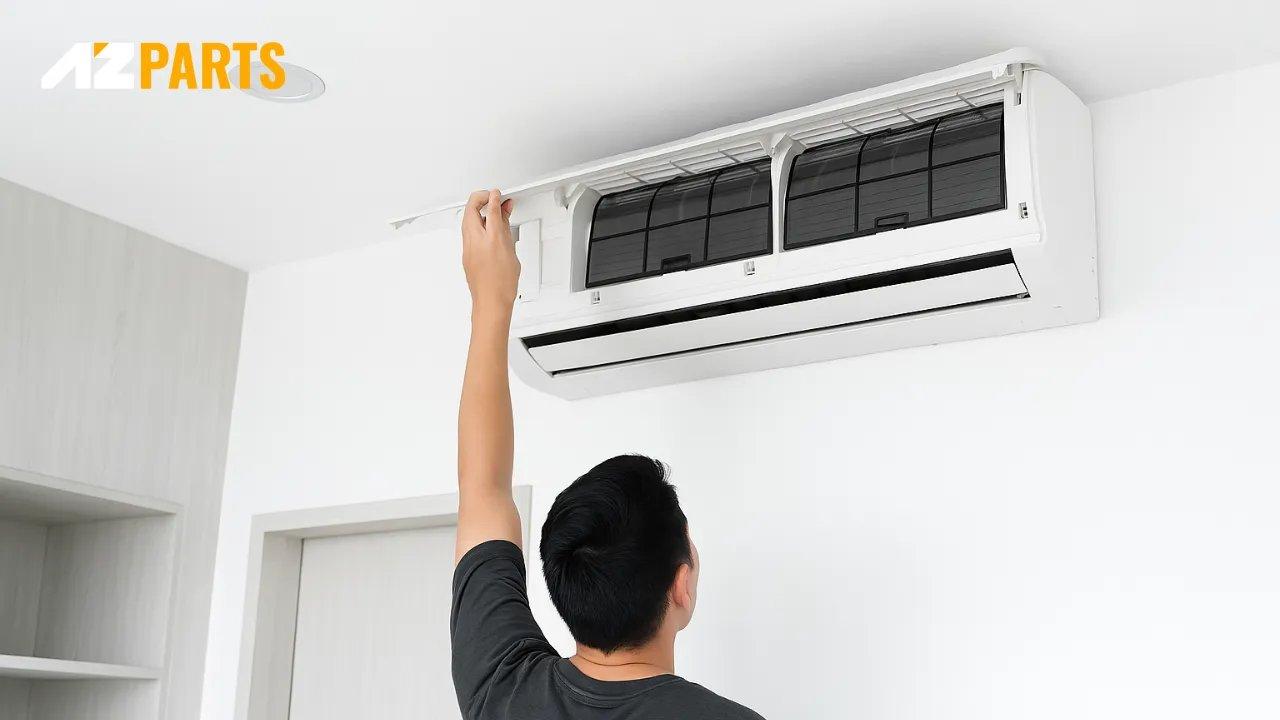Repair help
Air Conditioner Suddenly Stops Working? 5 Common Causes and Quick Fixes
AZparts Team
Updated on July 25, 2025
10 min read
When your air conditioner suddenly stops working, it often catches you off guard especially on the hottest days. Whether it's a blown fuse, a faulty capacitor, or a worn-out part, acting fast makes all the difference. In this guide, AZParts will help
you find the right replacement components to restore cool, comfortable air quickly and efficiently.
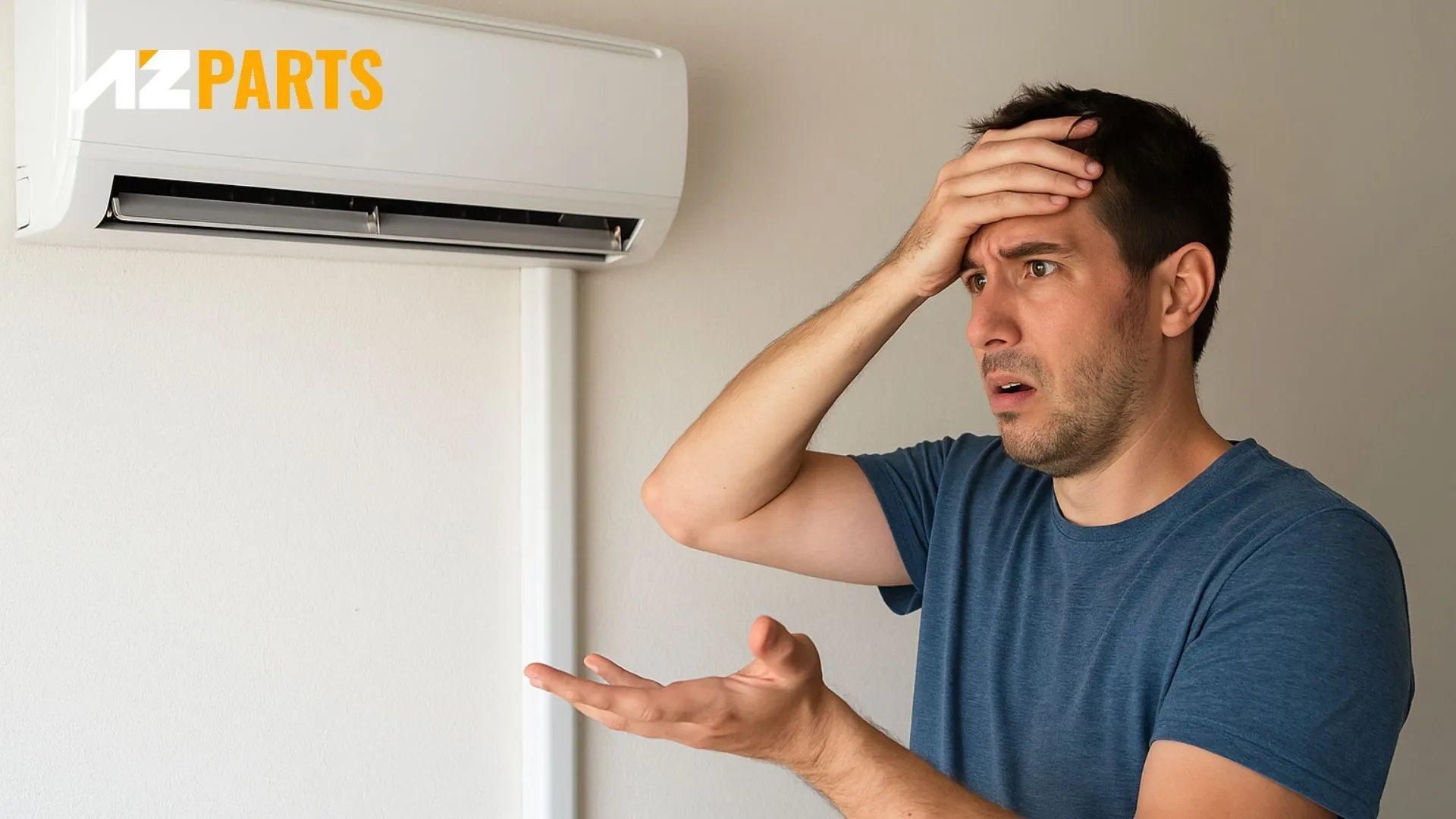
1. Quick Things to Check First
- Check the Thermostat: Make sure your thermostat is powered on, set to “cool,” and the temperature is lower than the current room temperature. Try adjusting the setting a few degrees to see if it triggers the system. Also check the location of your thermostat. If it’s placed near windows or cool drafts, it may misread the room temperature and shut the AC off prematurely. Dead batteries or dust buildup inside the thermostat can also cause malfunctions.
- Check the Breaker Box: A tripped circuit breaker is one of the most common causes of sudden AC shutdowns. Open your electrical panel and look for any tripped switches, especially the one labeled for HVAC. If tripped, flip it off and then back on. Frequent tripping may point to issues like dirty filters, electrical faults, or an overworked unit.
- Check for Airflow Issues: Restricted airflow can force your AC to shut down for safety. Start by inspecting all vents and grilles to ensure they’re not blocked by furniture or dust. Then checking the air filters. Clogged filters can strain the system, reduce airflow, and lead to overheating. Cleaning or replacing them may resolve the issue.
- Check Your Maintenance Schedule: If your unit hasn’t been cleaned or inspected recently, buildup of dirt and wear on components could be the cause. Review the manufacturer’s recommended maintenance checklist and see if any tasks are overdue. Regular filter changes and coil cleaning help your AC stay efficient and avoid unexpected failures.
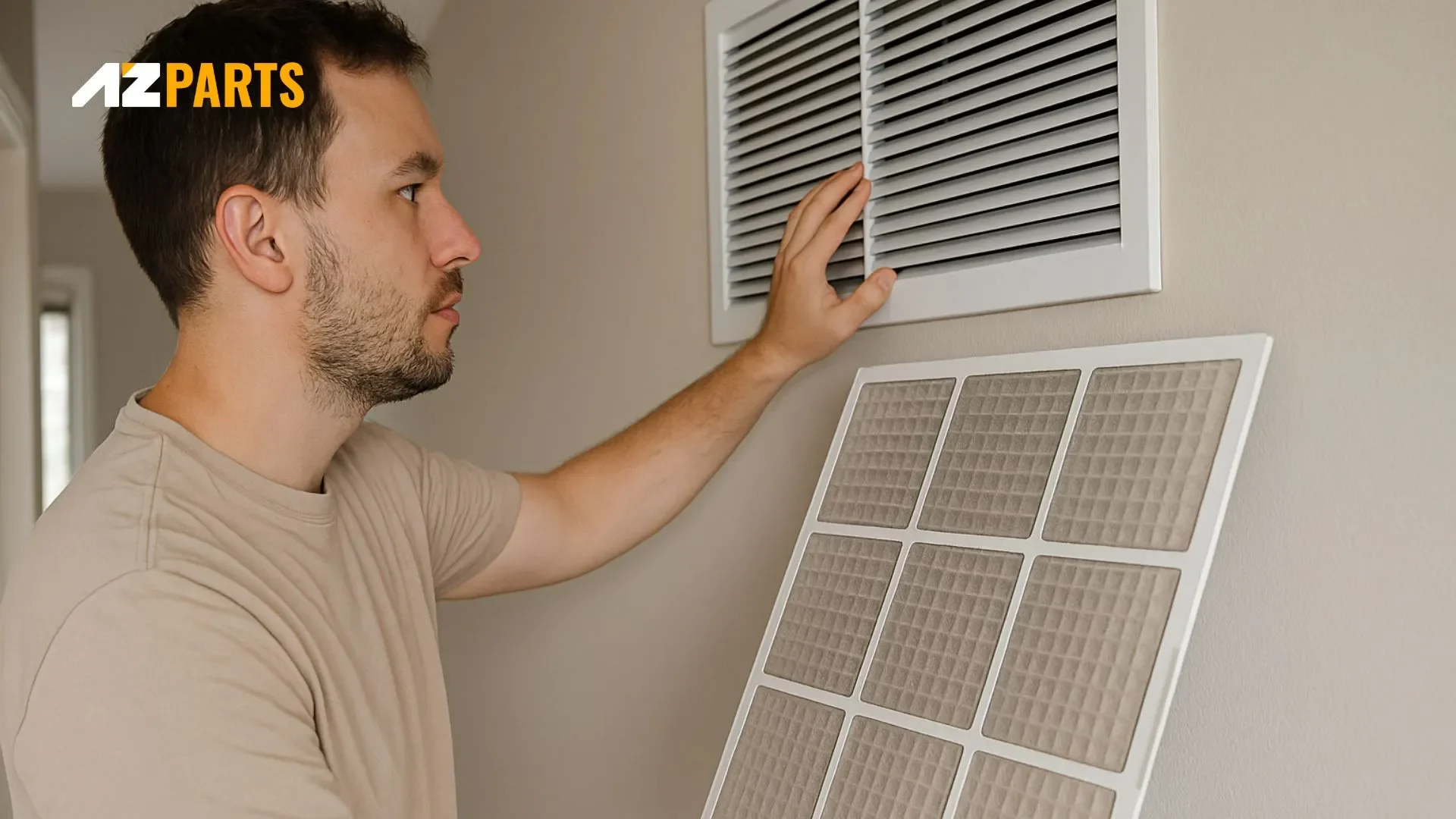
Inspecting Airflow and Dirty AC Filter in Home Ventilation System (Source:AZParts)
2. 5 Common Reasons an Air Conditioner May Stop Working
2.1. Clogged Air Filter
The air filter plays a vital role in keeping your AC system running efficiently by trapping dust, dirt, and other airborne particles. Over time, if the filter isn’t replaced, it can become clogged and restrict airflow.
When airflow is limited, the system must work harder to circulate cool air. This reduces efficiency, increases energy usage, and adds stress to critical components. In severe cases, restricted airflow can cause cold air to back up and freeze the evaporator coil which the part responsible for absorbing heat from indoor air. If the coil freezes and the issue isn't addressed, it can lead to complete system failure.
Signs your filter may be clogged:
- Weak airflow from vents
- Increased energy bills
- AC takes longer to cool the room
- Ice buildup on the indoor unit
Solution: Replace your air filter once a month, especially during peak cooling seasons or if you have pets. Many modern thermostats offer filter replacement reminders, helping homeowners stay on schedule and prevent unnecessary damage.
2.2. Mechanical Issues
Air conditioning systems rely on several key components to operate: the fan motor, compressor, evaporator coil, condenser coil, and expansion valve. Each has a specific function in the cooling process, and if any one of them fails, the entire system may be affected.
The indoor fan pushes warm air through the evaporator coil, where it is cooled. Outside, the compressor circulates refrigerant, and the condenser coil releases heat to the outdoors. The expansion valve controls refrigerant flow between the coils to maintain pressure balance.
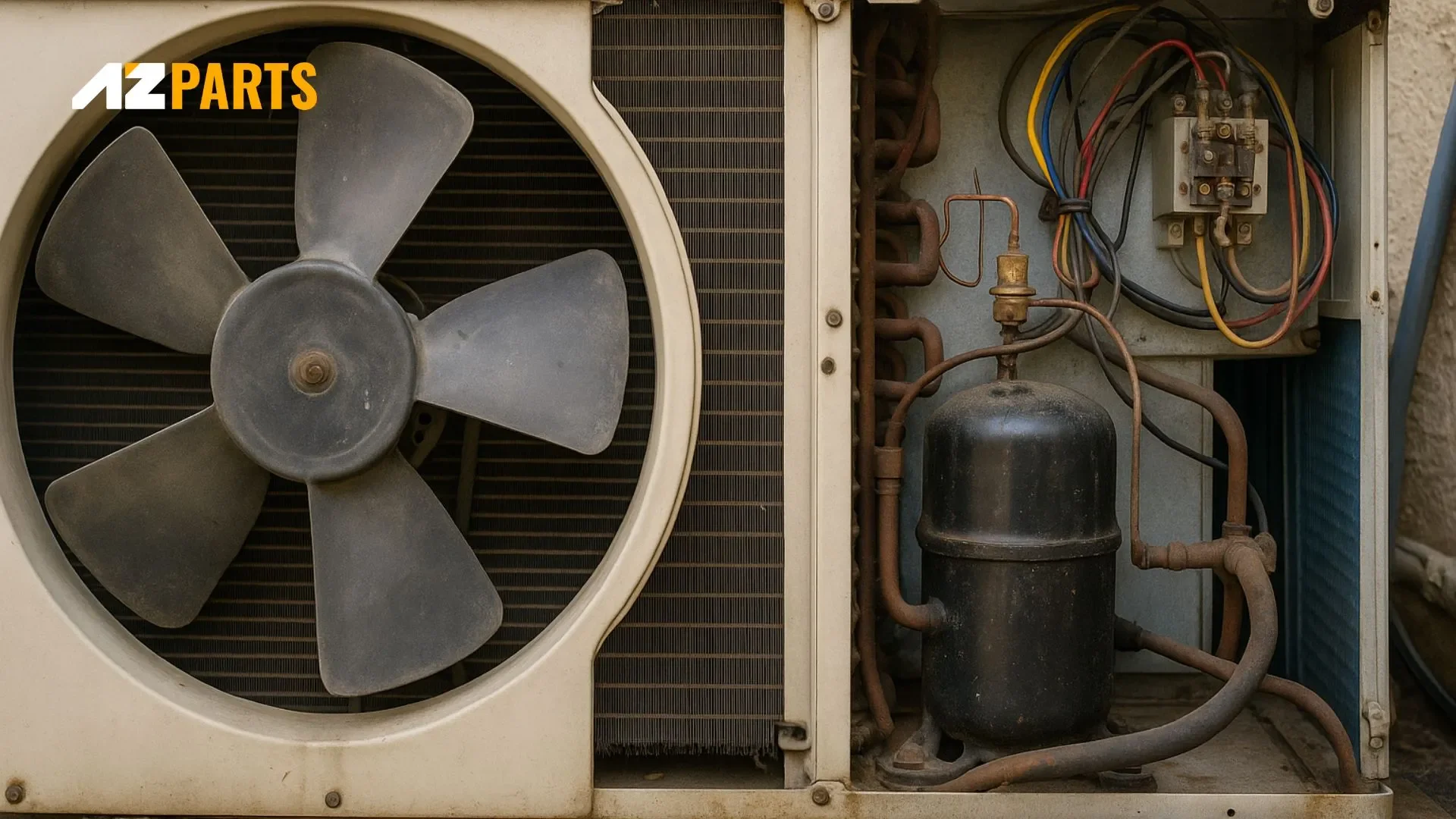
Common mechanical failures include:
- Fan motor failure: Reduces airflow or prevents heat from being released.
- Compressor damage: Stops refrigerant circulation, resulting in no cooling.
- Coil or valve problems: Disrupt the refrigerant cycle and lower efficiency.
- Capacitor problems: Faulty capacitors can cause the motor or compressor to stop working suddenly. Using a quality Air Conditioner Capacitor can restore proper operation.
These parts can wear down over time, especially if regular maintenance is neglected. Replacing major components like the compressor can be expensive and sometimes costs nearly as much as installing a new unit.
Prevention tip: Schedule annual HVAC checkups to inspect and maintain critical components. Routine servicing helps extend your system’s lifespan and prevents sudden breakdowns during peak usage.
2.3. Low Refrigerant
Refrigerant is the key substance that allows your air conditioner to cool your home. It works by absorbing heat from the indoor air and releasing it outside through a continuous cycle.
Inside your AC system, cold liquid refrigerant evaporates in the indoor evaporator coil as it absorbs heat from the air. This process turns it into a hot gas, which is then pumped to the outdoor condenser unit. There, the refrigerant releases the absorbed heat and condenses back into a liquid. The cycle then repeats.
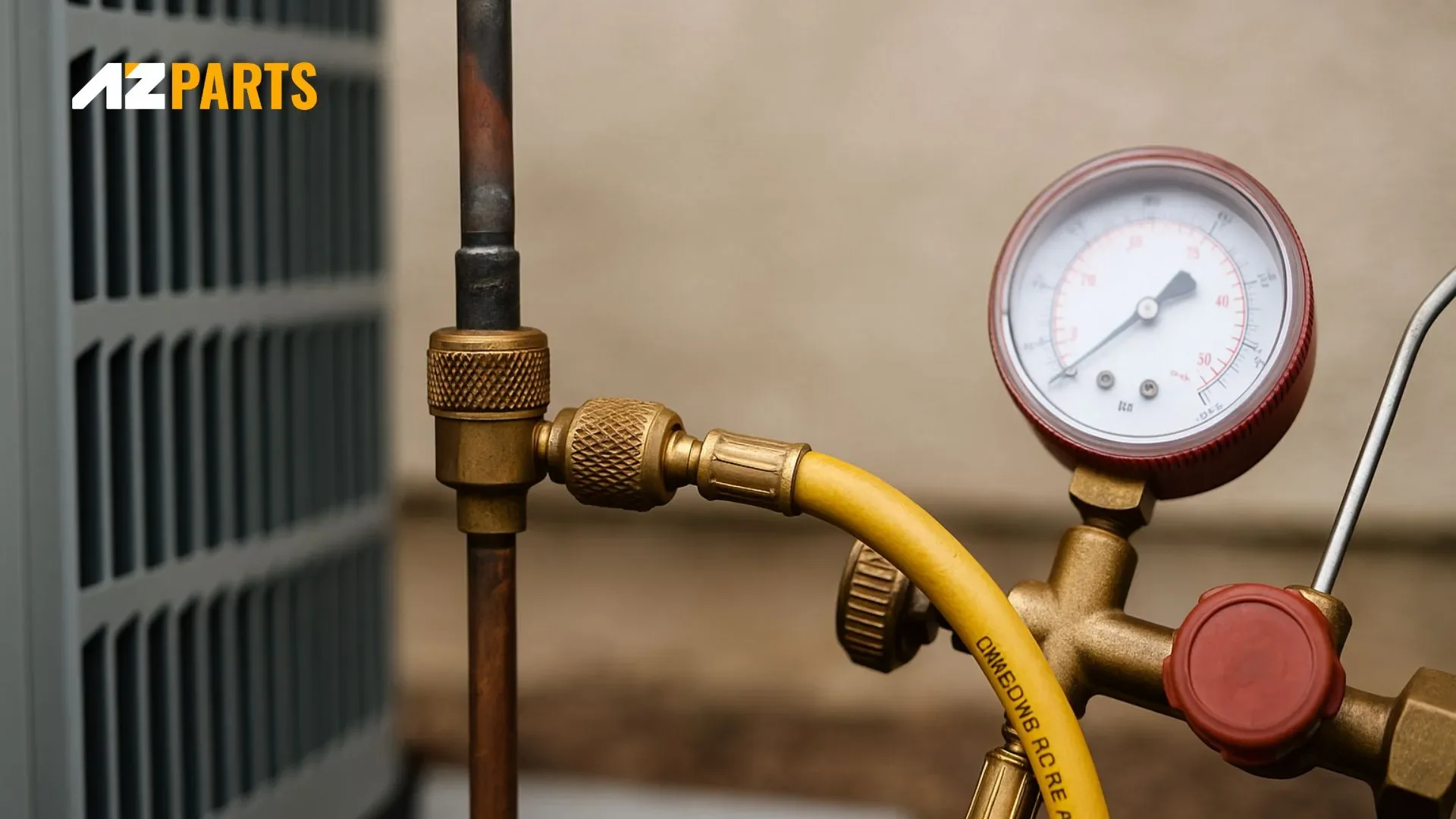
If the refrigerant level is too low, the system cannot remove heat efficiently, resulting in weak or no cooling. The unit may run for longer periods without effectively lowering the room temperature.
Possible reasons:
- The system was undercharged during installation (less common).
- A refrigerant leak has developed in the system (most common).
Leaks account for about 90% of low refrigerant cases, and they often go unnoticed until performance drops significantly.
Why simply adding more refrigerant is not enough
Adding refrigerant without fixing the leak is only a temporary solution. It can lead to recurring issues, higher energy costs, and long-term damage. A licensed HVAC technician should:
- Inspect the system to locate the leak.
- Repair or replace the damaged part including valves if necessary using reliable Air conditioner piercing valve
- Recharge the system with the exact amount of refrigerant specified by the manufacturer.
- Using too much or too little refrigerant can harm the compressor and affect overall system performance.
Signs your system may be low on refrigerant:
- AC runs constantly but doesn’t cool: The system can’t remove heat effectively without enough refrigerant.
- Air from vents feels warm or only slightly cool: Cooling performance drops noticeably.
- Ice forms on refrigerant lines or evaporator coil: Low refrigerant causes the coil to freeze.
- Hissing or bubbling noises: These sounds often indicate a refrigerant leak.
- Sudden increase in energy bills: The system uses more power to try and maintain the temperature.
A note on refrigerant types: Many older systems use R-22 (Freon), a type of HCFC that is being phased out due to its environmental impact. Newer systems now use more eco-friendly alternatives like R-410A (a type of HFC), which are more efficient and ozone-safe.
2.4. Blocked Outdoor Unit
Improper landscaping or neglecting lawn care can cause your outdoor air conditioning unit to overheat and work inefficiently. Shrubs, plants, and other debris can block the airflow around the condenser unit, which is essential for releasing heat from your home.
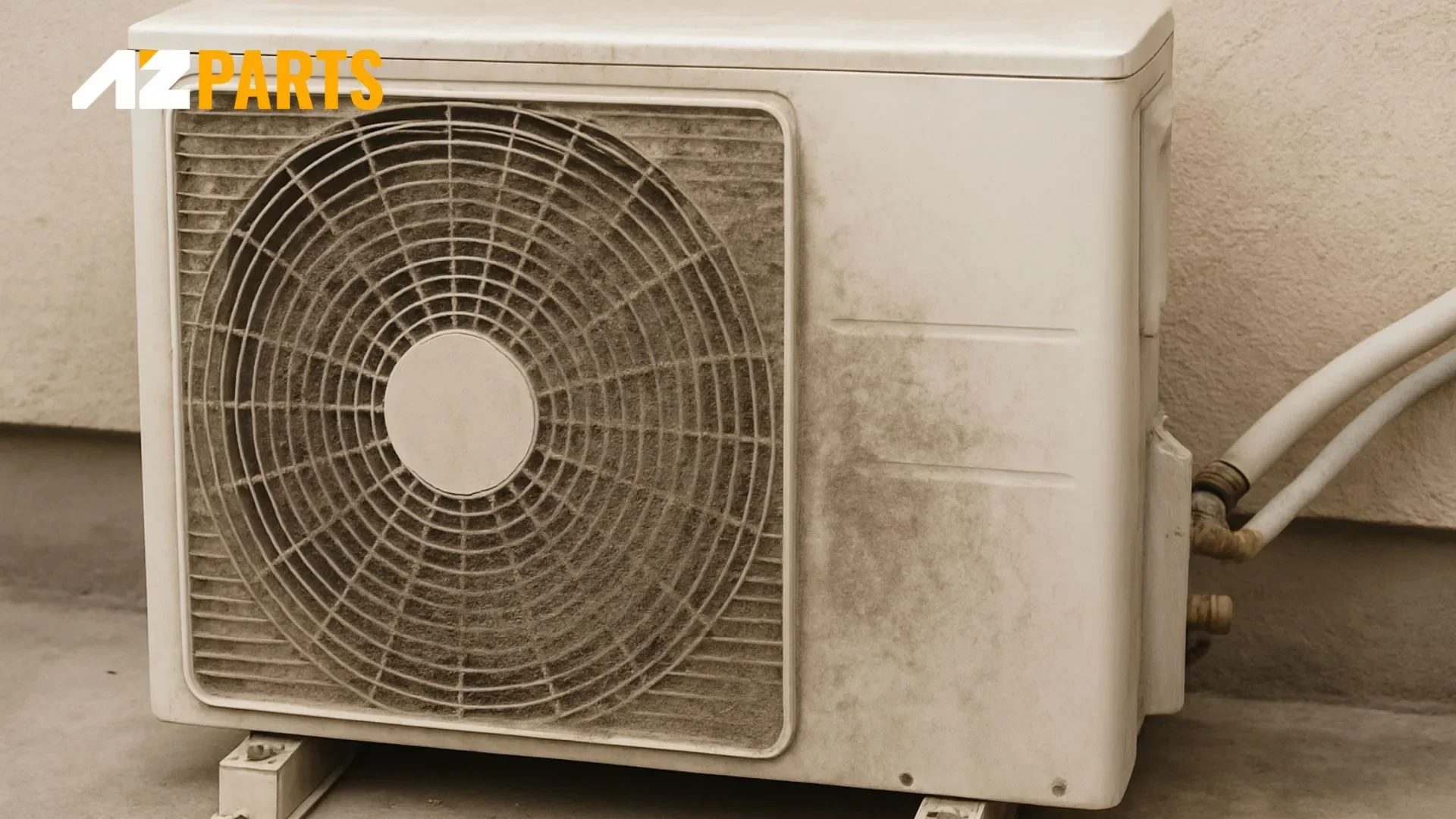
Dust Buildup on External AC Unit (Source: AZParts)
If the condenser coil becomes covered with dirt, leaves, or grass clippings, the unit struggles to transfer heat properly. This forces the system to work harder to cool your home and can lead to premature failure.
To keep your outdoor unit running smoothly:
- Maintain a clear space of at least 2 to 3 feet (60 to 91 cm) around the unit.
- Keep at least 5 feet (1.5 meters) of clearance above the unit, especially from overhanging trees.
- Periodically clean the unit by gently rinsing it with a garden hose to remove dirt and debris. Avoid using a pressure washer, which can damage delicate fins.
- Use a durable Air conditioner cover to protect your unit from external damage and debris buildup.
- Regularly trimming plants and removing lawn debris around the unit helps ensure proper airflow and prolongs the life of your AC system.
Regularly trimming plants and removing lawn debris around the unit helps ensure proper airflow and prolongs the life of your AC system.
2.5. The Unit Is Too Small or the Thermostat Is Faulty
A major reason for poor cooling is having an air conditioning unit that is too small for the space it needs to cool. If the unit lacks sufficient capacity, it will struggle to lower the temperature effectively. This causes the system to run longer and work harder, which increases wear on its components and shortens its lifespan.
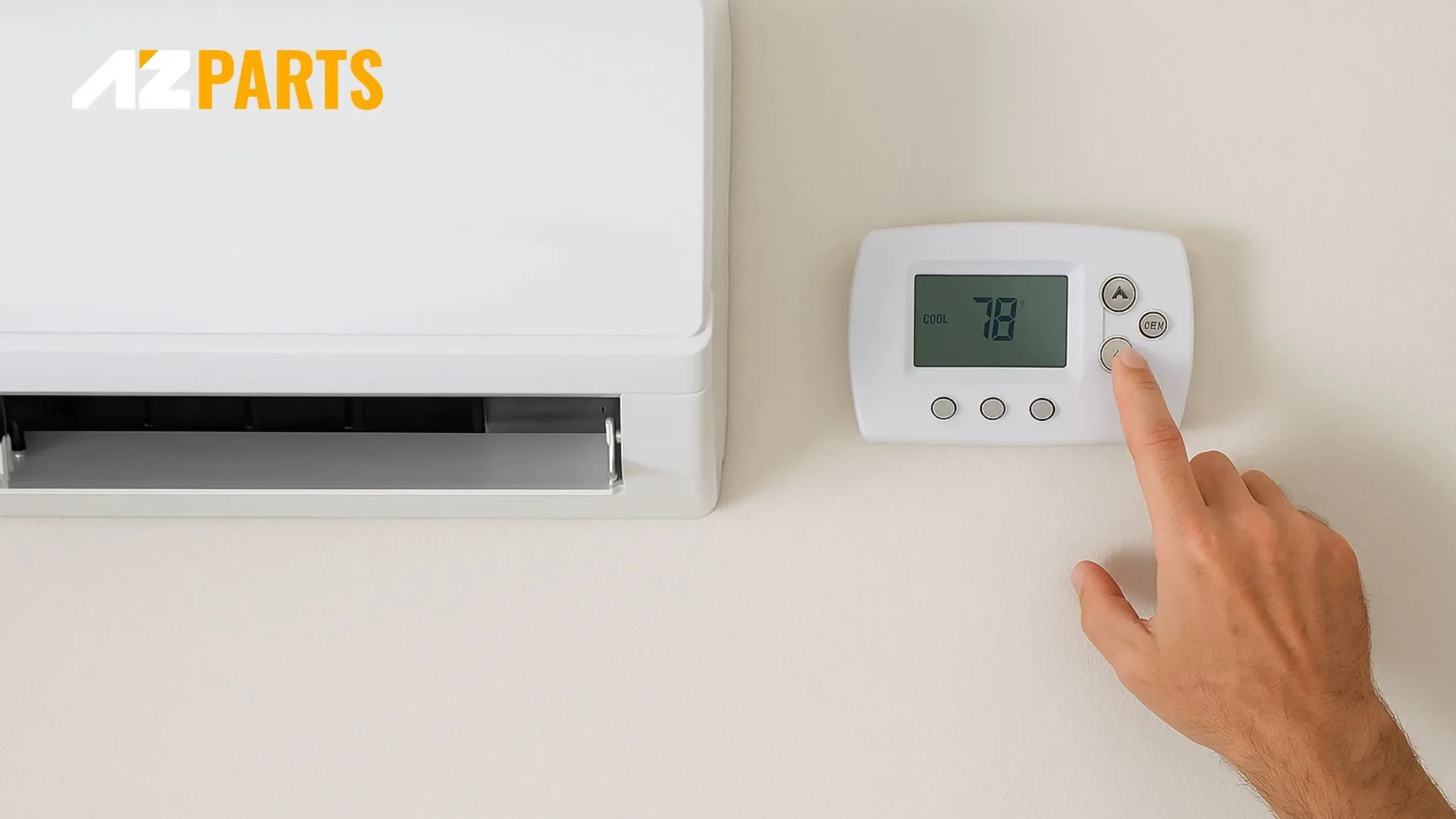
Proper installation requires careful calculations of your home’s cooling needs, as well as correctly sized air ducts. If the ducts are undersized, airflow is limited, forcing the system to work harder and reducing its efficiency.
Another common problem is a malfunctioning or improperly calibrated thermostat. Older dial thermostats may become inaccurate over time, sending incorrect signals that cause the AC to cycle improperly. This can prevent the system from reaching or maintaining the desired temperature.
To solve these issues, have a qualified HVAC technician check and recalibrate your thermostat if needed. Upgrading to a modern programmable thermostat can offer more precise temperature control and improve energy savings. Many newer models also provide remote control through smartphones or tablets for added convenience.
3. FAQs About AC Stopped Working Suddenly
3.1. Why did my air conditioner stop working out of nowhere?
An air conditioner may suddenly stop working for several reasons. One of the most common causes is a clogged air filter, which limits airflow and causes the system to overheat. Mechanical issues such as a damaged compressor or faulty fan motor can also lead to unexpected shutdowns. Low refrigerant levels due to leaks are another frequent cause and can affect cooling performance significantly.
If the outdoor unit is blocked by leaves or debris, the system may overheat and shut off automatically to prevent damage. Other possible reasons include thermostat malfunctions, tripped circuit breakers, and sudden power surges.
3.2. What is the first thing to check when the AC stops working?
The first step is to check the thermostat. Make sure it is turned on, set to the cooling mode, and the temperature is set lower than the current room temperature. If the thermostat uses batteries, try replacing them. Next, check the air filter to see if it is dirty or clogged, which could be affecting airflow.
Then go to your electrical panel and look for a tripped circuit breaker that may have cut power to the AC. Finally, inspect the outdoor unit to ensure there is no obstruction from vegetation, debris, or nearby objects. These initial checks can often help you identify simple problems before seeking professional help.
3.3. Why did my AC turn off all of a sudden?
An air conditioner may shut off suddenly if it detects conditions that could damage the system. Overheating is a common reason and may happen when airflow is restricted by a dirty filter or blocked outdoor coil. A faulty compressor or a failing capacitor can also interrupt operation without warning.
Electrical issues, including power surges or short circuits, may cut power to the system. In some cases, the thermostat may malfunction and send incorrect signals that cause the system to turn off prematurely. Sudden shutdowns are often a sign that the unit is protecting itself from further damage and should be checked promptly.
When your AC stops working suddenly, understanding common causes and performing quick checks can help prevent further damage and restore comfort sooner. Whether it’s a simple issue like a clogged filter or more complex problems such as refrigerant leaks or mechanical failures, timely action is important. For reliable replacement parts and effective solutions, trust AZParts to support your repair needs and get your air conditioner back to optimal performance.
Learn more about other AC problems and how to fix them:
Contact Info
Address: 8 The Green, Ste A, Dover, Delaware 19901-3618, United States
Email: support@azparts.com
Air conditioner
Further Reading
Further Reading





